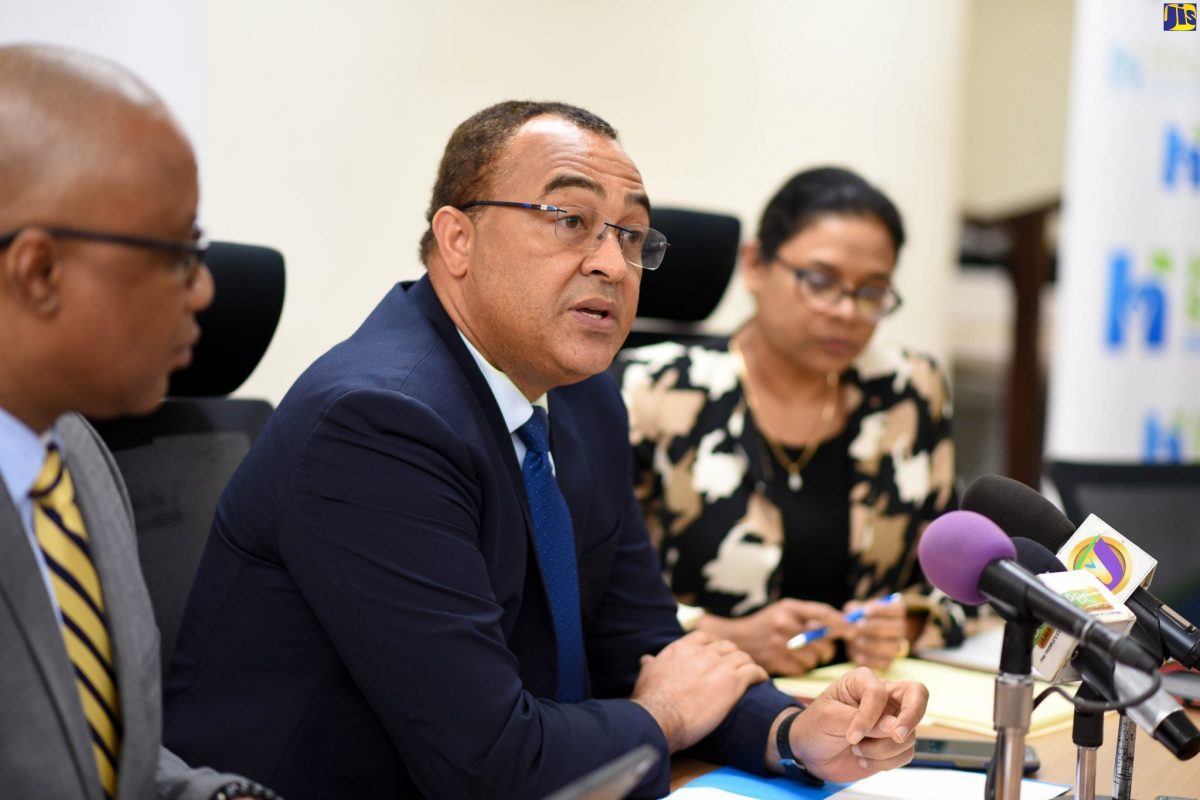(Jamaica Observer) They arrived in Jamaica seven weeks ago in a militant mood with one basic objective in mind — to improve the quality of life for Jamaica’s people.
Now, the latest Cuban medical brigade — all 148 of them — have integrated fully into the system and are deeply immersed in the mission to keep Jamaica healthy, according to the man who led the medical team here, Dr Eduardo Ropero.
In an interview with the Jamaica Observer last Tuesday, Dr Ropero, a general practitioner with experience valued at a quarter of a century of working in medicine, described the Jamaican experience thus far as “very good”.
Although the function of the Cubans are broad-based, they are particularly interested in playing their part to contain the spread of the novel coronavirus (COVID-19).
Dr Ropero is based at Cornwall Regional Hospital and is part of a unit that includes 21 Cubans — 11 doctors and 10 registered nurses. Four members of that team work in St James health centres.
“The doctors have been working in medicine ward, paediatrics ward, A&E [accident & emergency] ward and the isolated rooms with symptomatic patients. Three nurses have been working in the isolation centre with suspect patients,” he told the Sunday Observer.
Dr Ropero said that all his colleagues were happy with the facilities in which they were working at hospitals and health centres where they have been placed, despite comments elsewhere which have often questioned not only the quality, but quantity of health care equipment available especially in public institutions.
“We are all very comfortable and happy. We have adequate personal protective equipment to do our work and we are confident that we can play our part in providing good care for our Jamaican brothers and sisters.
“The Jamaican patients have been very cooperative and they understand our poor English very well. We, humbly, can advise about the dangers of unhealthy dieting. The importance of sex protection needs to be emphasised because there are a lot of patients with sexual diseases and can pose epidemiological risks,” he went on.
Dr Ropero said that he is “very happy” with Jamaica’s efforts at fighting COVID-19. “We are in agreement with the approaches and actions of the Government and Ministry of Health related to the COVID-19 fight. Every day new actions appear depending on the local epidemiological situation.”
More personally, Dr Ropero said that the visitors had comfortable accommodation and were provided with transportation daily, to and from work, by the health facility that they are assigned to. He is looking forward to the day when he and his Spanish-speaking colleagues will be able to walk into a Jamaican bar and have a few drinks.
Foodwise, they are, according to Dr Ropero, slowly getting used to the spicy Jamaican meals served, but also cook for themselves in typical Cuban style at their places of abode.
Missing their families, too, is something that the north Caribbean professionals have had to put up with, even though some have got used to being away from their homeland for several years, having worked all over the world.
The Cuban contingent, now part of a wider group that numbers over 450, is expected to remain in Jamaica for at least three years.
In an earlier interview at the end of the 14-day quarantine period of the Cuban medical workers, Dr Ropero said that the Caribbean professionals were in Jamaica to “support the Jamaican health system to fight the new pandemic; interchanging knowledge with colleagues of this country and improve the knowledge and health of the Jamaican people”.
The 46 doctors, 98 nurses, and four technicians arrived in Jamaica on March 21. They were deployed two weeks later to hospitals and health centres in the island’s four health regions — South East, North East, Southern, and Western. No member tested positive for COVID-19.
“Jamaica can depend on us 100 per cent. The Cuban medical personnel are filled with humanity and solidarity. We love our profession and we care for our patients,” said the first-time visitor to Jamaica, who has worked with medical missions in Venezuela and Brazil.
Jamaica’s Minister of Health & Wellness Dr Christopher Tufton lauded the general performance of the Cuban nationals. In a midweek interview with the Sunday Observer, Dr Tufton said that the medical personnel had “fitted in very well so far”.

“The good thing with Cuba and Jamaica is we have had a long-standing relationship that has worked, and so that kind of dynamic exists based on all that has happened prior to now. But this 140-odd that came, in having passed the two-week quarantine, have been deployed, our local people have been accustomed to having them, [and] so their transition is not that difficult.
“We selected them based on their minimal command of English, so it’s not that they are totally illiterate when it comes to the language, and so they kind of have a good idea based on the kind of relationship that we have had. They always help the process. Before this group came in we had over 300, so this number would make it around 450 or near 500. They have a support group because they have colleagues who are already here who help in the orientation, so it’s a easy transition.
“We couldn’t survive without them. I don’t care what anybody wants to say… the Cubans have been a very good addition to the work on the ground,” Minister Tufton said.






